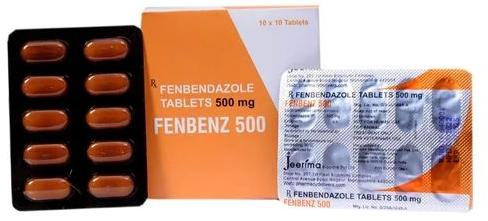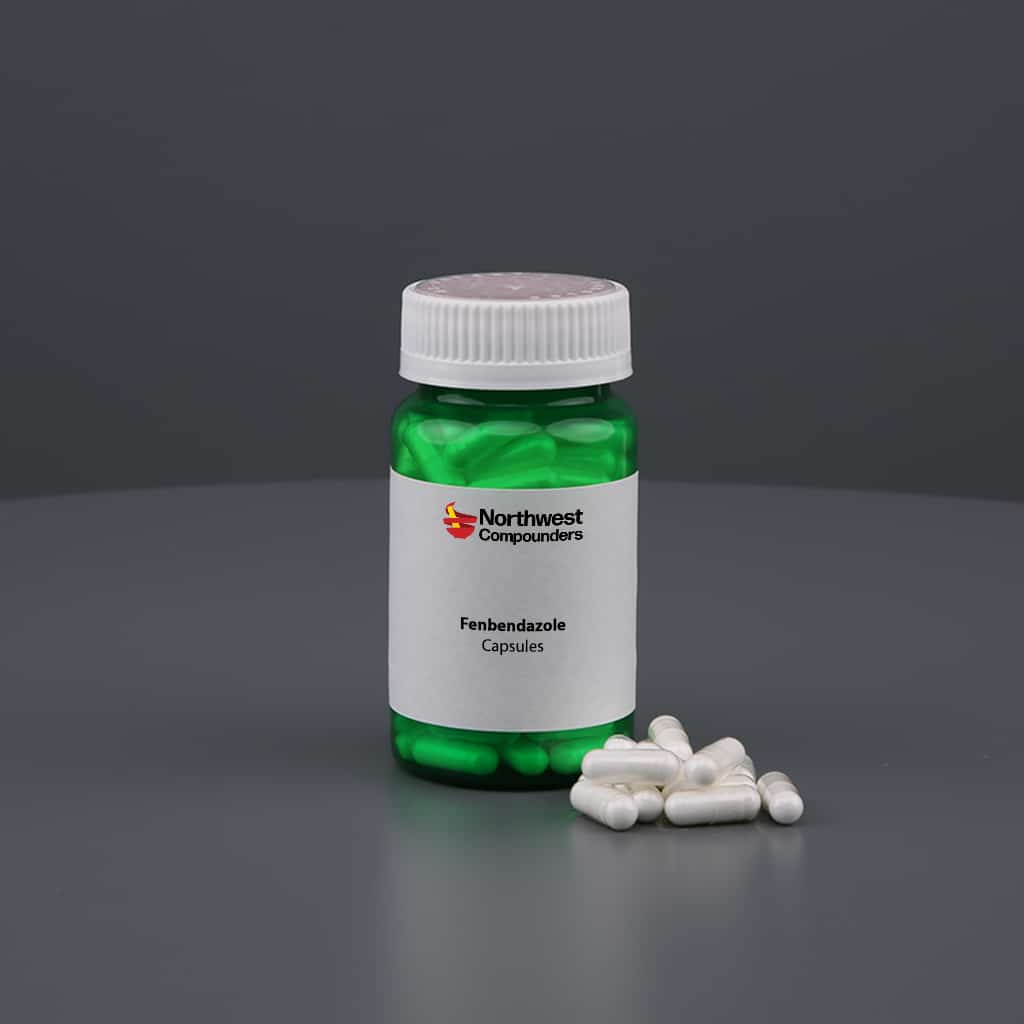fenbendazole 444: How It Helps in Reliable Parasite Control
Exploring the Systems Behind Fenbendazole and Its Influence on Animal Wellness
Fenbendazole is a widely utilized anthelmintic recognized for its effectiveness versus different parasites. Its key device includes the inhibition of microtubule development, which interferes with critical processes in these virus. Past its antiparasitic homes, fenbendazole also shows up to boost immune actions and has anti-inflammatory benefits. Understanding these complex impacts can disclose new applications for pet health and wellness. However, concerns remain regarding its full capacity and safety and security profile.
The Pharmacokinetics of Fenbendazole
The pharmacokinetics of fenbendazole, a commonly utilized anthelmintic in veterinary medicine, entails the research of its absorption, circulation, metabolic process, and excretion within animal systems. After administration, fenbendazole is swiftly soaked up from the stomach system, with peak plasma concentrations occurring within hours. Its distribution is affected by aspects such as cells binding and lipid solubility, permitting it to penetrate various tissues efficiently. The medication goes through extensive metabolic process mostly in the liver, where it is transformed right into energetic and non-active metabolites. These metabolites play a duty in the medicine's general efficiency and safety and security account. Excretion happens mostly with feces, with a smaller proportion gotten rid of by means of urine. The half-life of fenbendazole varies among species, which influences dosing routines. Recognizing these pharmacokinetic residential or commercial properties is important for optimizing its restorative use and making certain reliable bloodsucker control in veterinary practices.
Mechanisms of Action Versus Bloodsuckers
Fenbendazole exerts its antiparasitic effects mainly through the inhibition of microtubule formation in parasites. This disruption impacts their architectural integrity and cellular functions, leading to damaged energy metabolic rate. As an outcome, the drug successfully jeopardizes the survival and reproduction of numerous parasitic microorganisms.
Restraint of Microtubule Formation
Restraint of microtubule formation stands for a crucial system where certain anthelmintic agents, including fenbendazole, exert their effects on bloodsuckers. Fenbendazole binds to tubulin, a healthy protein that forms microtubules, disrupting the polymerization process required for microtubule assembly. This interruption hinders vital mobile features, including mitosis, intracellular transportation, and structural integrity. As microtubules play a vital duty in maintaining the form and function of parasitical cells, their inhibition leads to cell cycle arrest and eventual fatality of the parasite. This device is particularly effective against nematodes, as their reliance on microtubules for flexibility and nutrient absorption makes them prone to fenbendazole. The inhibition of microtubule formation is an important facet of fenbendazole's therapeutic effectiveness in vet medicine.
Disturbance of Energy Metabolic Rate
Disrupting energy metabolic rate is one more crucial device through which fenbendazole targets parasitical organisms. This anthelmintic alters the energy production pathways within bloodsuckers, largely affecting their capability to create adenosine triphosphate (ATP) By hindering glucose uptake and interrupting mitochondrial function, fenbendazole limitations the energy resources vital for the survival and reproduction of these organisms. Therefore, bloodsuckers come to be progressively susceptible to environmental tensions and immune feedbacks. In addition, the disturbance in energy metabolism not just influences the parasites directly but likewise minimizes their capability to absorb nutrients, even more impairing their growth. Generally, the interruption of basal metabolism stands for an essential element of fenbendazole's efficacy against numerous parasitic infections, contributing considerably to boosted pet health and wellness outcomes
Possible Adverse Effects and Safety Profile
The potential side results and safety and security profile of fenbendazole warrant careful factor to consider, specifically in vet applications. While normally considered as safe, some pets might experience negative reactions, including gastrointestinal disruptions such as throwing up and diarrhea. In addition, neurological symptoms, although unusual, have actually been reported in delicate individuals, highlighting the need for tracking throughout therapy.

Fenbendazole's safety in different species, including pets and cats, has actually been recorded, but dosage and period of treatment should be carefully handled to decrease risks. Expecting or breast feeding pets might also need special attention, as the impacts on establishing unborn children or nursing spawn are not totally understood.
Routine veterinary appointments can help reduce prospective negative effects and guarantee the drug is administered appropriately. Consequently, while fenbendazole is a reliable anthelmintic representative, caution regarding its adverse effects is important for keeping animal health and wellness.

Fenbendazole's Influence on Immune Function
Fenbendazole has been noted for its potential to regulate body immune system actions in pets. Its anti-inflammatory buildings may contribute to improved immune function, giving a dual benefit in managing health (fenbendazole 222). Comprehending these impacts is vital for assessing fenbendazole's role in vet medication
Immune System Inflection

Anti-inflammatory Properties
Anti-inflammatory effects represent a considerable aspect of fenbendazole's influence on immune function. Research indicates that fenbendazole may reduce the production of pro-inflammatory cytokines, which are essential in moderating inflammatory actions. By modulating these cytokines, fenbendazole can potentially minimize inflammation-related conditions in animals. This anti-inflammatory action not only help in taking care of signs and symptoms connected with numerous conditions but also boosts overall immune system efficiency. Furthermore, its capability to promote a balanced important link immune action assists prevent excessive inflammatory damages, which can bring about persistent health concerns. As a result, fenbendazole's function in inflammation administration underscores its relevance in vet medication, supplying a twin advantage of antiparasitic action and immune system support for pet health and wellness.
Applications Past Standard Parasitical Infections
While mainly identified for its efficiency versus different parasitic infections, fenbendazole has actually garnered interest for potential applications yet standard range. Recent research studies suggest that fenbendazole might have valuable impacts on cellular wellness and immune response, making it an appealing prospect for managing various other health problems in animals. Its reported anti-inflammatory properties may give relief for animals experiencing from persistent inflammatory conditions. Additionally, some research shows that fenbendazole could play a function in sustaining the total wellness of animals by improving vitamins and mineral absorption and gastrointestinal health. Its possible as a complement treatment in cancer therapy has actually triggered interest, as initial findings suggest it might inhibit tumor cell growth in specific contexts. These varied applications highlight fenbendazole's versatility, motivating more expedition right into its complex benefits for animal health beyond its conventional use as a deworming representative.
Future Research Study Instructions and Effects for Animal Health And Wellness
The expedition of fenbendazole's prospective applications has actually opened up brand-new avenues for research study focused on boosting animal health. Future researches can focus on its effectiveness against a wider series of virus, including germs and viruses, thus broadening its function in veterinary medicine. The implications of fenbendazole's mechanisms, such as its effect on immune modulation, warrant even more examination to recognize just how it can boost general health and wellness in numerous types.
Additionally, study might explore optimal does and formulations to optimize effectiveness while lessening possible negative effects. Checking out fenbendazole's collaborating impacts with other drugs might result in more reliable therapy protocols. Longitudinal research studies assessing long-term results in pets treated with fenbendazole might give important understandings right into its security and efficiency. In general, the ongoing exploration of fenbendazole supplies appealing possibility to enhance pet wellness, demanding a collaborative method among scientists, veterinarians, and pharmaceutical programmers to facilitate advancements in this field.
Often Asked Concerns
Can Fenbendazole Be Used in Livestock for Bloodsucker Avoidance?
The question of whether fenbendazole can be used in animals for bloodsucker avoidance matters, as manufacturers look for effective treatments (fenbendazole 222). Study shows it he has a good point may offer advantages, yet proper guidelines and vet suggestions are vital for risk-free usage
What Is the Advised Dose of Fenbendazole for Various Pets?

Exist Any Kind Of Known Drug Interactions With Fenbendazole?
Present understanding suggests that fenbendazole may engage with particular medicines, possibly influencing their efficiency or metabolism. Veterinary specialists advise seeking advice from a vet to examine private pet instances and determine any kind of feasible communications prior to management.
Exactly How Does Fenbendazole Contrast to Other Antiparasitic Medications?
Fenbendazole is frequently contrasted to various other antiparasitic medications based upon effectiveness, spectrum of task, and security profiles. It is preferred for its effectiveness versus a large range of bloodsuckers while generally showing very little negative effects in pets.
Is Fenbendazole Effective Against Viral or Microbial Infections in Animals?
The effectiveness of fenbendazole versus viral or bacterial infections in pets stays unverified. Research study primarily focuses on its antiparasitic properties, with minimal evidence sustaining any kind of role in dealing with non-parasitic infections in veterinary medication.